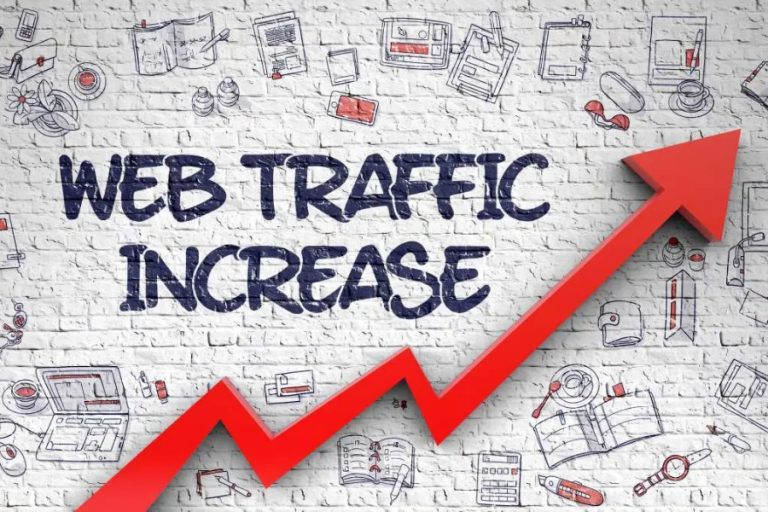What are Meta Tags? How to Use Them for SEO-Detailed Guide
Gaining a grasp of the importance of meta tags is essential for enhancing the visibility and ranking of websites in the ever-changing field of search engine optimization (SEO). Meta tags are crucial components that are included into HTML code and give search engines information about the content of webpages. With a bold “What are Meta Tags?” statement, this blog explores the meaning of meta tags and how they might improve SEO tactics. This thorough guide will provide you with the information and resources you need to properly utilize meta tags and improve the search engine performance of your website, from explaining the many kinds of meta tags to investigating best practices for their optimization.
Table of Contents
What are Meta Tags?
HTML elements called meta tags give search engines and website users information about a webpage. Although inconspicuous to users, they play a vital role in search engine optimization (SEO). Meta tags are made up of many qualities such as meta titles, meta descriptions, and meta keywords that provide pertinent information about the content of a webpage. In search engine results, meta titles function as the primary headline, and meta descriptions offer a succinct explanation. Although they were formerly utilized to identify pertinent keywords, meta keywords are becoming less important for SEO. Furthermore, meta tags that influence how search engines explore and display information include robots and viewport. In general, meta tags are essential for informing search engines about the content and relevancy of webpages, which enhances user experience and improves search engine results.

Why are meta tags important for SEO?
Because they give search engines important information about webpages, meta tags are essential to SEO. Click-through rates and user engagement are impacted by the way search engines show and rank pages in their results, which is determined in part by meta titles and descriptions. Furthermore, meta elements like viewport and robots regulate how search engines display and crawl content, resulting in the best possible indexing and rendering. Websites can increase their exposure and relevancy in search results by optimizing meta tags with pertinent keywords and precise descriptions, which will eventually result in an increase in organic traffic. In conclusion, meta tags are crucial for successful SEO tactics since they improve the performance of websites in search engine rankings.
How to Optimize Your HTML Meta Tags for SEO
Meta Description
Creating a compelling meta description is essential to search engine optimization. It’s a succinct synopsis of a webpage that shows up in search results. To guarantee that it appears in full in search results, keep it to no more than 160 characters. Incorporate organically occurring keywords that are relevant to draw users in and increase click-through rates. Make your meta description interesting and educational to persuade readers to click on your link. Every meta description should appropriately convey the website’s content and provide visitors a clear notion of what to expect. Though they have no direct effect on search engine results, meta descriptions are essential for drawing people to your website, which can help you perform better in search engine optimization.

Meta Robots Tag
One useful method for managing search engine crawling and indexing of your website’s content is the meta robots tag. It lets you provide instructions like “nofollow” to tell search engines not to follow a particular link, or “noindex” to stop some sites from being indexed. Making effective use of the meta robots tag will guarantee that only pertinent pages appear in search results and will speed up the indexing process for your website. By focusing search engine bots on important sites, it can also avoid duplicate content problems and protect your site’s crawl budget. It is imperative that you comprehend and apply the meta robots tag correctly if you want to maximize your website’s SEO performance and increase its visibility to search engines.
Meta Viewport Tag
One element that is essential for mobile website optimization is the meta viewport tag. It regulates the viewport’s width and scaling to make sure websites show properly on a range of screen sizes and resolutions. Web developers can create responsive designs that effortlessly adjust to various devices by adding characteristics like “width=device-width” and “initial-scale=1.0.” Because it keeps content from looking excessively huge or small and guarantees that visitors can navigate and interact with the website with ease, this tag is crucial for enhancing the user experience on mobile devices. Achieving mobile friendliness, which is crucial for search engine results and general SEO performance, requires effectively using the meta viewport tag.
Meta Title
One essential component for SEO optimization is the meta title, sometimes referred to as the title tag. It acts as the primary headline for the webpage and gives users a concise synopsis of its contents in search engine results and browser tabs. In order to create an optimized meta title, you must include pertinent keywords that appropriately represent the subject and content of the page. To guarantee that the title appears completely in search results, it must be succinct and captivating, ideally less than 60 characters. Search engine visibility and click-through rates can both be increased with a well-optimized meta title. Moreover, search engines utilize the meta title as a ranking component, thus tweaking it well can have a good effect on the search engine ranks and overall SEO performance of your website.

Improve Your Meta Tags Today
optimizing the SEO effectiveness of your website starts with optimizing your meta tags. Enhancing meta titles, descriptions, and other tags can help you draw more natural visitors to your website by making it more visible in search engine results. Write enticing and pertinent meta descriptions to get people to click on your connections. Make sure your meta titles contain pertinent keywords and appropriately represent the content of your webpages. For greater control over how search engines index and present your material, particularly on mobile devices, use meta tags like viewport and robots. You can significantly raise your website’s search engine rankings and online visibility by concentrating on making improvements to your meta tags. To improve your SEO performance and increase visitors, start tweaking your meta tags right now.
Conclusion
In conclusion, optimizing meta tags is crucial for improving your website’s SEO performance and attracting more organic traffic. By crafting compelling meta titles and descriptions, controlling how search engines crawl and display your content, and ensuring mobile-friendliness with meta viewport tags, you can enhance your website’s visibility in search engine results. Remember that meta tags play a vital role in communicating the relevance and content of your webpages to both users and search engines. Therefore, investing time and effort into improving your meta tags can yield significant benefits for your website’s search engine rankings and overall online presence. So, what are meta tags? They are essential elements that contribute to your website’s success in the competitive world of online search.
Read More What Is Indexing in SEO? How to Get Your Website Indexed by Google
FAQ’S
Do meta descriptions impact SEO?
Yes, meta descriptions influence click-through rates and search engine rankings by providing a summary of webpage content.
Are meta tags visible to website visitors?
No, meta tags are not visible on webpages but provide information to search engines about webpage content and relevance.







